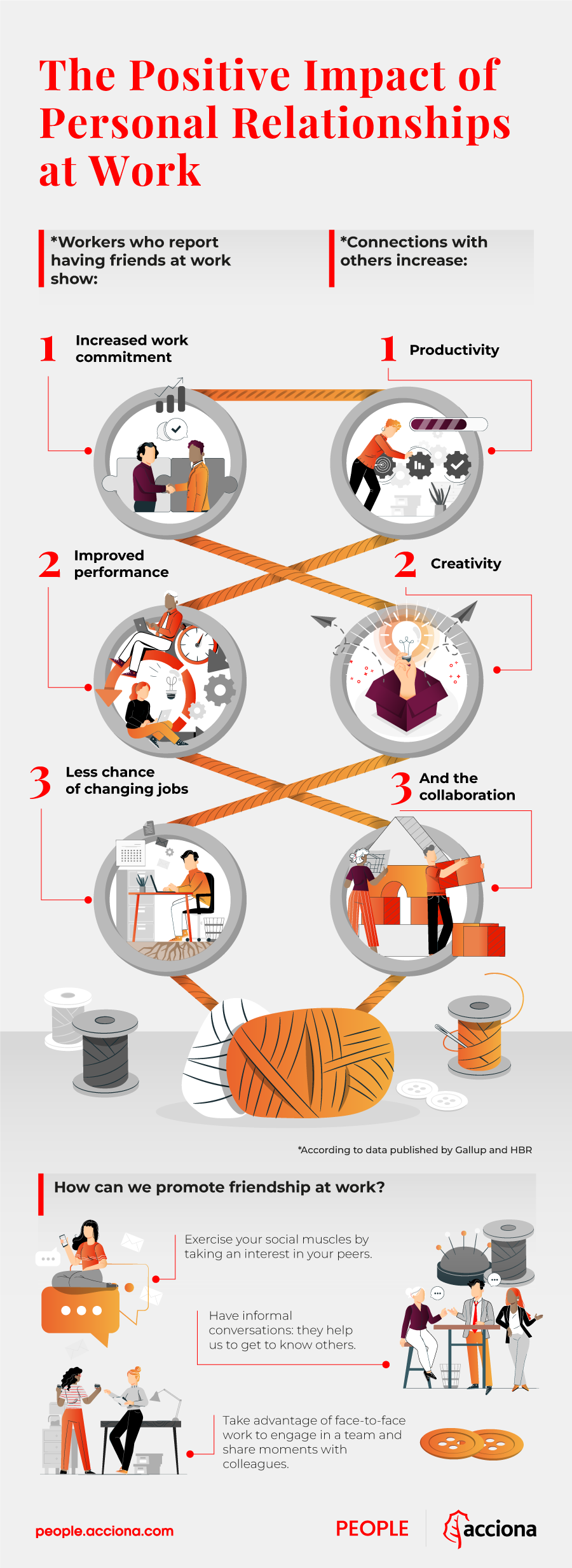Friendship at work, an intangible factor in motivating and retaining talent
We spend a large part of our lives at work – typically around 40 hours a week. Understandably, the bonds we form with our colleagues mark us in some way.
In an increasingly interconnected world, the importance of personal relationships in our professional and personal lives cannot be underestimated. Personal connections can be a powerful driver for improved performance, both at individual and team level.
Indeed, a Gallup survey found that only 30% of workers said they had such a connection at work. However, these 30% demonstrated significantly higher work engagement, superior performance and were less likely to leave their job for a more attractive offer. In addition, the Gallup survey also found that having a close friend at work had become even more important since the pandemic and the rise of hybrid and remote work.
“Personal connections can be a powerful driver for improved performance, both at individual and team level”.
Meaningful connections in the workplace drive many of the outcomes that are fundamental to high-performing teams. As this HBR article points out, they achieve better rates of productivity, creativity and collaboration. Not only do they work better, but they provide more stability to a team.
Conversely, when employees feel disconnected from their team or lonely, their ability to concentrate deteriorates and their willingness to collaborate plummets. Worse, they devote valuable cognitive resources to trying to hide their loneliness from others, leaving less brainpower to complete projects. In short, they become less able to do their work.
Fostering friendships at work through small talk
These seemingly insignificant conversations can bring great and ongoing benefits to our well-being. In fact, research shows that small talk, even with strangers, brings a touch of happiness.

